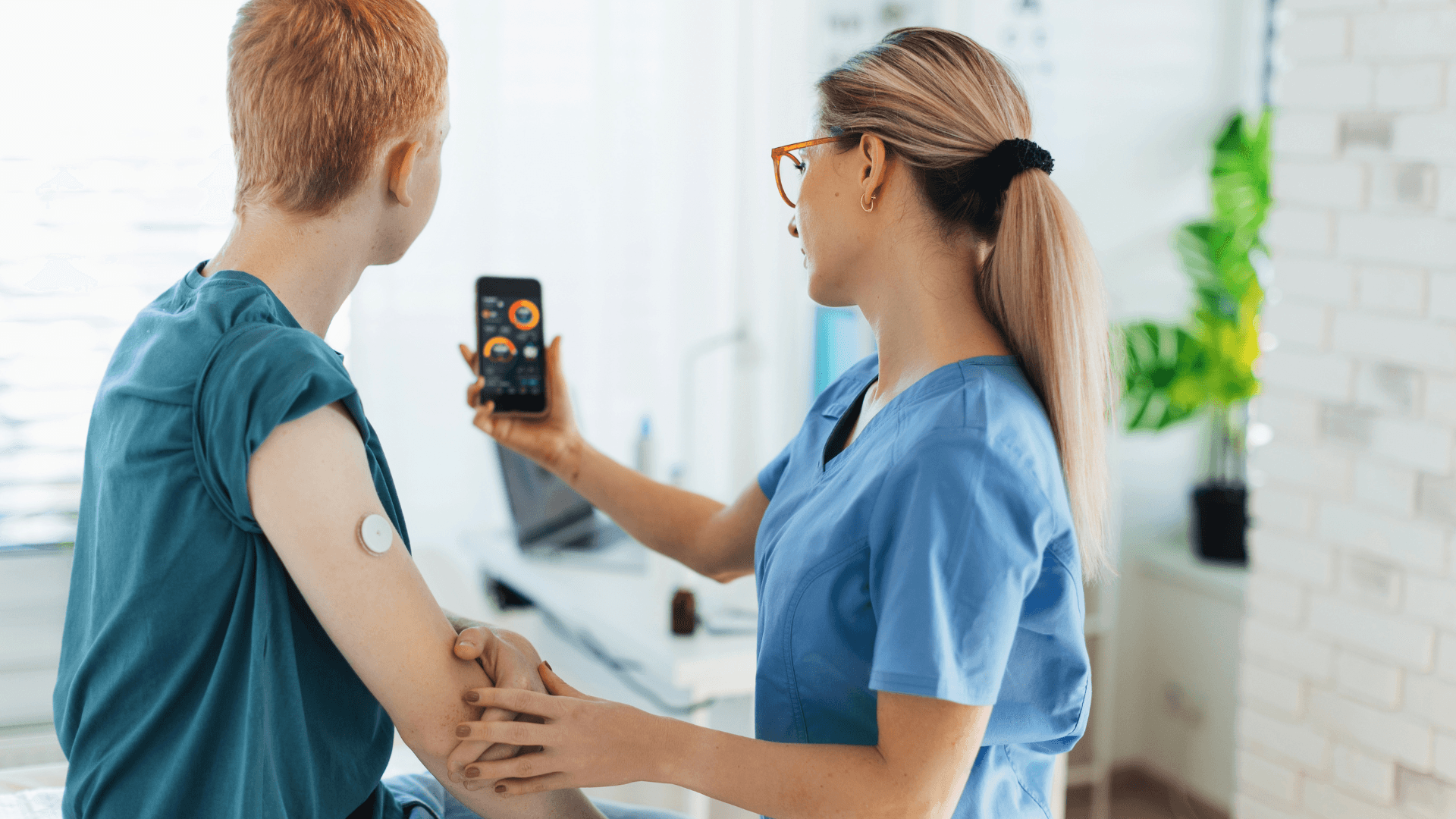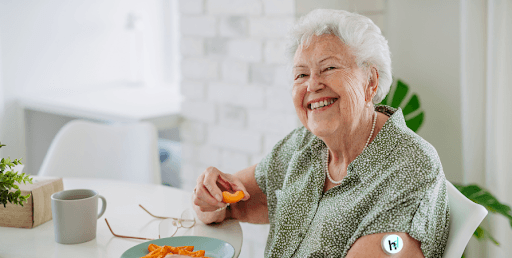Discover essential foods to avoid for better management of Type 2 diabetes. Learn how Heald’s personalized approach can help improve blood sugar control. Book a doctor appointment now.
Subscribe to our newsletter
Managing Type 2 diabetes requires more than just medication—it involves making smart lifestyle choices, particularly when it comes to food. While certain foods can help maintain steady blood sugar levels, others can cause spikes and lead to complications. Avoiding these "worst offenders" is crucial for controlling diabetes and improving overall health. In this blog, we will explore essential foods that individuals with Type 2 diabetes should avoid and offer alternative food choices that promote better blood sugar management.
Introduction
Type 2 diabetes affects millions of people worldwide, and one of the most important aspects of managing it is choosing the right foods. The goal of a diabetes-friendly diet is to keep blood sugar levels within a healthy range while providing the body with the necessary nutrients. While some foods support this goal, others can be detrimental, causing spikes in blood sugar and insulin resistance.
A study published in the Journal of Diabetes Research emphasized the critical role diet plays in managing Type 2 diabetes. By avoiding certain foods, individuals can significantly reduce the risk of complications and improve their quality of life.
Top Foods to Avoid
There are specific foods that people with Type 2 diabetes should steer clear of due to their ability to raise blood sugar levels and contribute to insulin resistance. Many of these foods are highly processed and contain added sugars or unhealthy fats that make diabetes management more challenging.
10 Worst Foods for Type 2 Diabetes
Sugary Beverages: Drinks like sodas, sweetened teas, and energy drinks are loaded with sugar and can cause a rapid spike in blood sugar levels. Studies have shown that sugary beverages are a leading cause of weight gain and insulin resistance.
White Bread and Pastries: Refined grains, such as those found in white bread and pastries, can lead to a sudden rise in blood sugar. These foods are stripped of their natural fiber, which is essential for slowing down glucose absorption.
Fried Foods: Fried foods, particularly those deep-fried in unhealthy oils, can contribute to inflammation and insulin resistance. They are also high in calories, making it harder to maintain a healthy weight, a key factor in diabetes management.
Processed Snacks: Chips, crackers, and packaged snacks often contain refined carbohydrates, unhealthy fats, and preservatives. These can quickly elevate blood sugar levels without providing essential nutrients.
Sugary Cereals: Many cereals are marketed as healthy but contain high amounts of sugar. These quick breakfast options can lead to blood sugar spikes and increased cravings throughout the day.
Full-Fat Dairy Products: Full-fat milk, yogurt, and cheese can contribute to insulin resistance due to their high saturated fat content. Opting for low-fat or non-dairy alternatives can help maintain better blood sugar control.
Candies and Sweets: Candies, chocolates, and other sugary treats offer no nutritional value and can cause significant spikes in blood glucose.
Trans Fats: Found in many processed foods, margarine, and baked goods, trans fats are harmful to heart health and can exacerbate diabetes by increasing inflammation.
Flavored Coffee Drinks: Specialty coffee drinks, often loaded with syrups and whipped cream, are packed with sugar and calories, leading to quick rises in blood sugar levels.
Alcohol: While moderate alcohol consumption may not pose a significant risk, excessive intake can lead to blood sugar imbalances and interfere with diabetes medications.
Heald’s Solution: Heald’s app provides AI-powered insights and meal tracking to help users avoid these harmful foods. By tracking food intake and glucose levels, users can see how their dietary choices affect their blood sugar in real-time, making it easier to manage diabetes effectively.
Your journey to a diabetes-free life starts here
HealD X: The Advanced Diabetes Program with Stelo CGM at $89 month
Read More

The Heald WA channel is a goldmine of support and information for those on their diabetes reversal journey. Sharing experiences, tips, and triumphs with fellow community members can provide invaluable motivation and practical advice. From meal plans and exercise routines to emotional support and accountability, the collective wisdom within the group can accelerate progress and make the path to diabetes reversal feel less daunting.
Foods That Contribute to Diabetes
Certain foods don’t just complicate diabetes management—they may also contribute to the onset of Type 2 diabetes. A diet high in processed foods, sugars, and unhealthy fats has been linked to insulin resistance, weight gain, and an increased risk of developing diabetes.

Credits: MDPI
According to a study published in the American Journal of Clinical Nutrition, diets rich in refined carbs and sugars are strongly correlated with the development of insulin resistance, which is the hallmark of Type 2 diabetes.
Key Foods That Contribute to Diabetes:
Sugary desserts and baked goods
Processed meats
Fast food
High-fat dairy products
High-sodium packaged meals
Impact on Blood Sugar Levels
The foods we eat have a direct impact on blood sugar levels. Refined carbohydrates and sugary foods cause a rapid rise in glucose levels, leading to spikes and crashes that can be dangerous for individuals with diabetes. Over time, consistently high blood sugar can lead to serious complications such as heart disease, kidney damage, and nerve damage.
Example of Common Life Problem: Consider a person with Type 2 diabetes who eats a high-sugar breakfast, like a donut or sugary cereal. Shortly after eating, they experience a significant spike in blood sugar levels, followed by a crash, leading to fatigue, cravings, and mood swings. This cycle repeats throughout the day, making it difficult to maintain stable blood sugar and contributing to long-term health issues.
Heald’s Solution: Heald’s real-time glucose monitoring through Continuous Glucose Monitors (CGMs) helps users track their blood sugar levels continuously, allowing them to see how specific foods affect their body. This enables users to make better food choices that keep their glucose levels stable.
Alternative Food Choices
The good news is that there are plenty of delicious and nutritious alternatives to the foods listed above. By focusing on whole, unprocessed foods, people with Type 2 diabetes can keep their blood sugar levels stable and enjoy a healthier diet.
Healthy Alternatives:
Whole Grains: Instead of white bread, opt for whole grains like quinoa, brown rice, and oats, which have a lower glycemic index and are packed with fiber.
Leafy Greens: Vegetables like spinach, kale, and broccoli are excellent choices for maintaining stable blood sugar levels.
Lean Proteins: Choose grilled chicken, fish, or plant-based proteins like lentils and tofu to promote better glucose control.
Nuts and Seeds: A handful of almonds, walnuts, or chia seeds can provide healthy fats and protein without spiking blood sugar.
Fresh Fruits: Berries, apples, and pears are lower in sugar compared to tropical fruits like mangoes and pineapples, making them safer for individuals with diabetes.
Heald’s Solution: Heald’s personalized meal plans include these healthy alternatives, tailored to your specific dietary needs. The app offers meal suggestions based on your glucose readings, ensuring you make the best choices for managing your condition.
Conclusion
Managing Type 2 diabetes involves making smarter food choices and avoiding foods that can raise blood sugar levels. By steering clear of sugary beverages, refined grains, processed snacks, and other harmful foods, you can maintain stable glucose levels and reduce your risk of complications.
Comments










